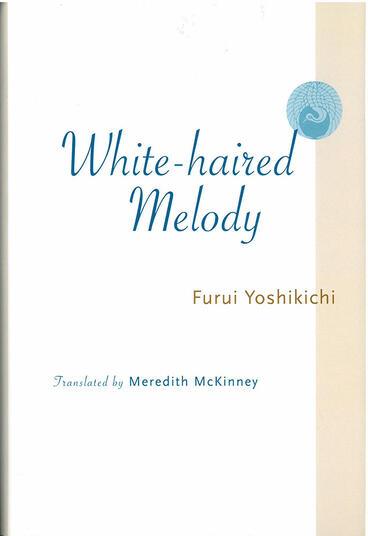White-Haired Melody
A meditative exploration of aging and approaching death by one of Japan’s finest novelists
Description
Furui Yoshikichi’s work has long dealt with the human dramas of growing up and growing old, but by probing further into the recesses of the mind and memory, he also touches upon the deepest mysteries of human existence. And as if to balance the somber themes of madness and death, Furui shows a great sensitivity to the dark humor inherent in everyday life. White-Haired Melody is no exception; it is the record of the daily experiences of a man approaching old age. It delves into the essential but hidden nature of his daily life, employing prose that is relentless in its re-creation of detail. This novel is a meditative exploration of the strange borderland around the inner experience of aging and approaching death. Yet, rather than follow a conventional plot, the novel develops by means of an intricate weaving together through time of key experiences of the narrator and his friends to build a compelling portrait of human experience. Those familiar with Furui’s writings will find here a fascinating new development of earlier themes. White-Haired Melody, a work by one of Japan’s finest contemporary novelists writing at the height of his power, is not to be missed.
Born in Tokyo in 1937, Furui Yoshikichi graduated from the University of Tokyo in German literature. While teaching at Kanazawa University, he translated the Austrian writers Robert Musil and Hermann Broch. He left the university in 1970 and began to
Reviews
"This is a great work that sustains the life of Japanese belles-lettres.”—Suzumura Kazunari, Gunzô
“Furui Yoshikichi—a writer who continues to gaze at the abyss of human life—has in this work used actual events such as the Kobe Earthquake and the Aum Shinrikyo subway attack as a background to create a universal world that resonates with the thoughts and words of those who have passed away and other characters who are grappling with the onset of old age.” —Ôi Kôichi, Mainichi Shinbun
“White-haired Melody is a long-awaited excellent work that depicts the everyday anxieties of people grappling with their fifties. Beneath the serene surface of Furui’s style ripples the anxiety and dangers of everyday life.”—Kasahara Nobuo, Sankei Shimbun
“White-haired Melody, from various angles, minutely describes the words of the dead, the sentiments of the sick, fantasy, physical sensation, and physiology. The air of a particular day, the call of a bird, the scent of a tree, the color of a flower—the appeal of Furui’s style is in its call on all of the five senses.”
—Urata Kenji in Nihon Keizai Shimbun

